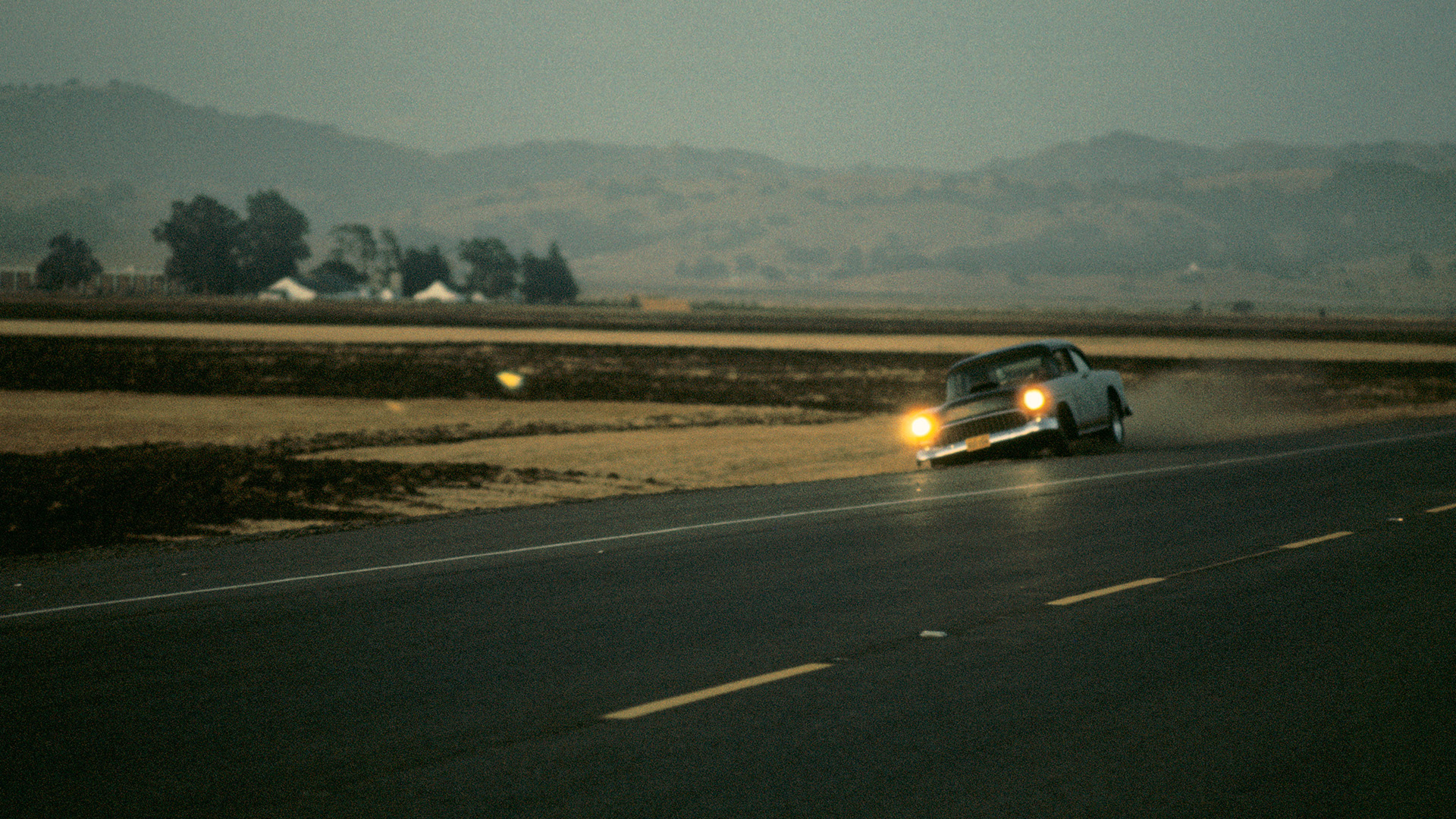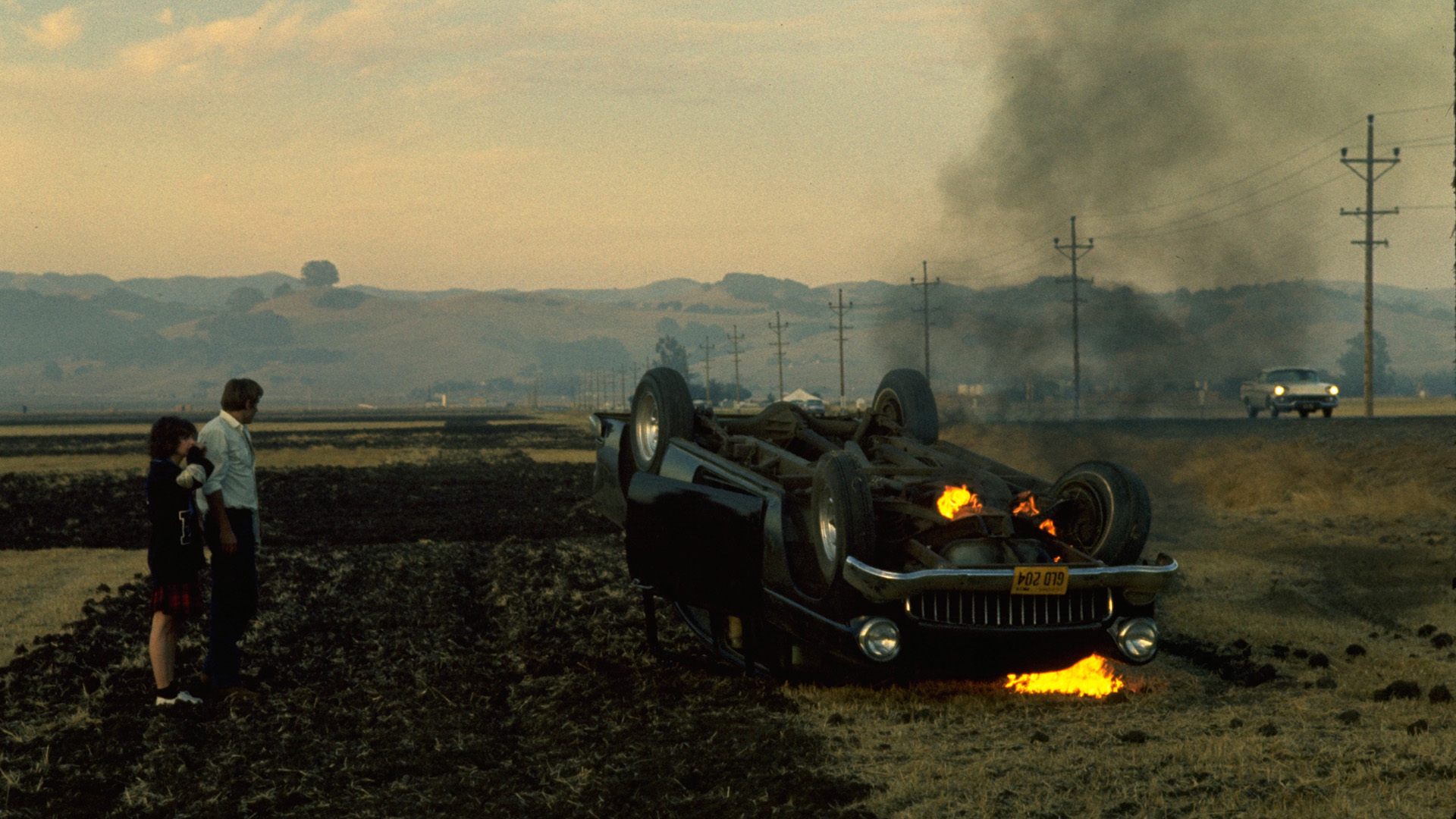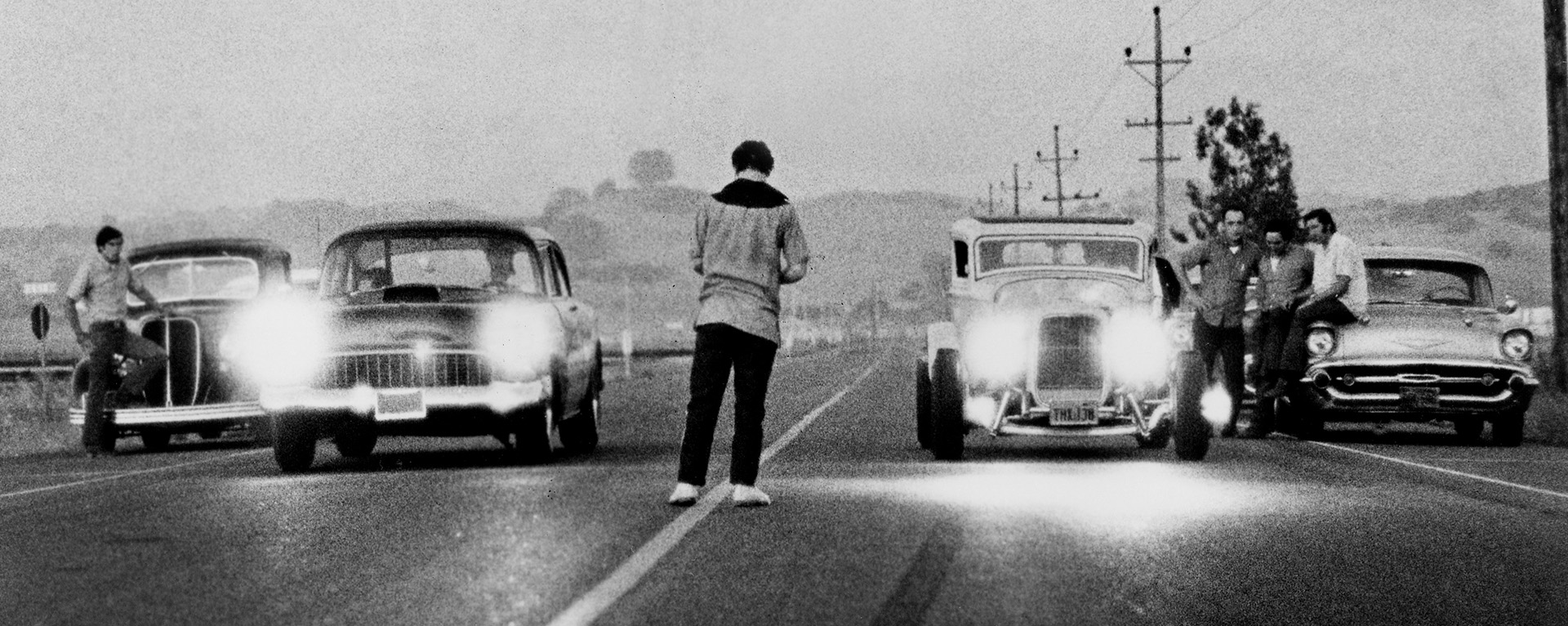Defining Moments: Paradise Road
American Graffiti’s Climactic Race Put Youthful Drama at Top Speed
“Defining Moments” is a continuing series exploring key scenes or sequences from Lucasfilm’s many productions. It examines storytelling craft, behind-the-scenes insights, and cultural legacies from each selection. Revisit an old favorite or discover something brand new…
Production: American Graffiti (1973)
Sunrise outside a sleepy town. Two souped-up cars align down a hallowed straightaway known as Paradise Road. The steady, mellow beat of “Green Onions” echoes from their radios.
After a long night, out-of-towner Bob Falfa (Harrison Ford) in his jet-black 1955 Chevrolet and local champion John Milner (Paul le Mat) in his yellow 1932 Deuce Coupe are about to determine whose car is “the fastest thing in the valley.” But Falfa has a young passenger, and the bare-knuckle race will put more than one life at risk.
The climactic scene of American Graffiti, a 1973 production directed by George Lucas, was among the first Lucasfilm moments set at high speed. A racer himself, Lucas used rapid cuts and impactful sound to convey the intimate action of Graffiti’s fateful race. It helped set the standard of many chases to come.
The frail yet indomitable Terry the Toad (Charles Martin Smith) starts the race with a flashlight, and the cars screech into the morning light. They’re neck and neck until Falfa’s black Chevy suddenly veers off the road, careening onto its back. He and teenaged Laurie (Cindy Williams) manage to escape before the car erupts in flames. Only Laurie’s high school sweetheart Steve (Ron Howard) can console her, a drama that seals their future together.
The northern California town of Petaluma was Graffiti’s primary filming location, and Frates Road on its eastern side played the mythical “Paradise Road.” Fittingly, the scene came at the end of the shooting schedule in July 1972, after nearly a month of tiring night shoots. Within a couple of days, everything had been captured except for the crucial moment. The stunt driver had been unable to successfully flip the Chevrolet onto its roof. A second try was attempted weeks later, as a new driver managed to lurch the car over the embankment and roll into the neighboring field.


Lucas O. Seastrom is a writer and historian at Lucasfilm.

